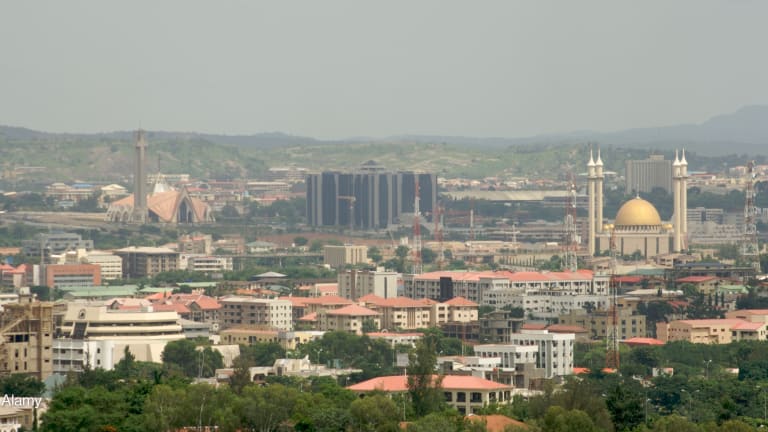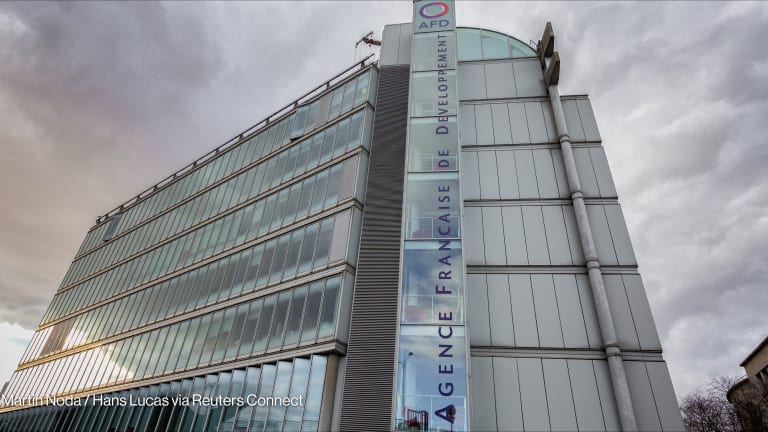
NAIROBI — The rate of progress on human development has slowed over the past five years, according to the 2017 Ibrahim Index of African Governance, released today. The report found that progress in education has “nearly ground to a halt” and the public is also losing faith in the ability of their governments to handle improving basic health services.
While the index also rates countries in other areas, such as governance, rule of law, and sustainable economic opportunity, the human development category has been growing at the fastest rate over the past decade compared to the other areas measured in the index, with the most growth in the health sector. But the overall rate of this progress has notably slowed over the past five years.
The index, published by the Mo Ibrahim Foundation, measures human development from 2000 to 2016, through 26 indicators focused on welfare, education, and health. Development indicators include access to sanitation, primary school completion, and narrowing income gaps, among others. The index ranks countries and also reports on their rates of progress over set timeframes.
The global price slump in commodities in recent years could be a contributing factor to the slowdown, as commodity-dependent governments have smaller budgets, resulting in lower spending on development, Festus Mogae, former president of Botswana, told Devex. Mogae won the 2008 Ibrahim Prize for Achievement in African Leadership. The slowdown in progress could also result from complacency, he said. Pride in development gains over the past decade may have led some governments to slow their momentum.
‘Progress in education has nearly ground to halt’
Education “progress has almost stopped in the latter half of the decade” showing rates that are “eight times slower than over the decade,” according to the report. Burundi, for example, has the third largest improvement in education since 2007, but has been progressing more than eight times slower in the past five years.
“Worryingly, in a continent where 41 percent of the population is under 15 years old, progress in education has nearly ground to halt,” said the Mo Ibrahim Foundation in a press release.
While there have been efforts to increase access to primary education, overcrowding in schools and a limited number of qualified teachers are limiting positive outcomes in education, Danielle Resnick, senior research fellow at the International Food Policy Research Institute’s Development Strategies and Governance Division, told Devex.
Another contributing factor to the slowdown could be the transition from the Millennium Development Goals, which prioritized areas such as education and health, to the Sustainable Development Goals, which address a wider variety of objectives, said Resnick.
“I think there was more mobilization around these indicators with the MDGs than with the SDGs,” she said.
Progress and deterioration
Côte D’Ivoire, Egypt, and Togo have led Africa in rates of progress on human development in the past five years. Côte D’Ivoire saw its biggest gains in improved educational system management, Egypt in improved basic health services, and Togo in access to antiretroviral treatment. In 2007, Togo ranked in the bottom 10 countries for human development. Since then, it has jumped 15 places to the 32nd spot.
The gains in Côte D’Ivoire might be attributed to a “bounce back” after conflict ended in the country in 2011 and the election of President Alassane Dramane Ouattara began to bring stability to the country, said Resnick. This could also be true for Egypt, where the regime change in 2014 with the election of Abdel Fattah el-Sisi has been seen as a force of stability following the Arab Spring. But despite Egypt’s progress on health, its rankings on citizen participation and human rights have deteriorated.
Togo, as well, has seen recent street protests against the government. President Faure Gnassingbé succeeded his father in 2005, who had seized power in a coup in 1967. Protester in Togo are demanding term limits and his resignation.
“Clearly the gains that are happening in human development are not really being broadly appreciated by the public, who are more interested in pushing out a dictator who has been there for a quite a bit of time,” she said.
The greatest rates of deterioration in development over the past five years, meanwhile, have been in Libya, Ghana, and Sierra Leone. In the human development category, Libya saw its greatest declines in its existence of a social safety net, Ghana saw a decrease in the public’s perception of how the government is handling basic health services, and Sierra Leone has seen the greatest deterioration in efforts to narrow income gaps.
“Ghana’s downward trajectory over the past decade has seen it fall from the eighth rank to 12th while Libya’s substantial decline in the same period has seen the country drop 15 rank places from third in 2007 to 18th in 2016,” according to the report.
In terms of overall rankings on human development, Mauritius, Seychelles, and Botswana are leading the continent. Somalia, South Sudan, and the Central African Republic fall at the bottom of the index.
Antiretroviral treatment provision is the most improved indicator for Africa, across the entire index, in the past 10 years, as well as the past five years. According to the World Health Organization, in 2000 less than 1 percent of people who needed antiretroviral treatment were receiving it, but last year that figure had risen to 54 percent.
“I hope that our leaders are using the index to take a pulse, to see how they are performing,” said Mogae. “To see where they are making progress and where progress may be declining in some sectors and therefore deciding to do something about it to stop the decline.”
Read more Devex coverage on Africa.








